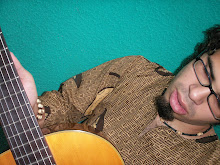06/27/11
Brazil has an interesting cultural norm that is not so common in the U.S., the existence of empragadas. The U.S. definitely does have a similar practice because a lot of people do pay to have their houses cleaned, usually by Hispanic, lower-class women and the very wealthy have maids or butlers. However, here in Brazil the hiring of empregadas is much more common, much more pronounced, and not paid very well.
My grandmother's embragada is a middle-aged woman named Katiane. She comes to our house every Monday, Wednesday, and Saturday to clean absolutely everything. She washes everyone's (currently only 8 people, but usually more) clothes by hand and hangs them all to dry on a clothes line. Once the clothes are dry she irons, folds, and puts away all the clothes. She mops the floors of the entire house each time she comes. Every time she moves all the furniture of the house to mop the floor under it and she mops the two stairways outside of the house and the driveway once a week (carpet doesn't exist in Brazil. All the floors are tile and the house is 6 bedrooms, 4 bathrooms). She cleans the bathrooms, the kitchen each day she comes. She works each day from 9 a.m. to 5 p.m. My grandma pays Katiane $450 reals (the name of Brazilian currency) a month, which is a good salary and above average than what she would be receiving somewhere else. Also, my grandma doesn't require her to cook, which most empragadas do as part of the package of cleaning someone's house. Normally, empregadas receive $550 reals a month for working six days a week in someone's house including cooking breakfast, lunch, and dinner for the family. For these kind of empragadas usually they are given a small room in the house to live in during the week and then they go to their "home" on Saturday evening and return Monday morning. $550 reals a month is the national minimum wage in Brazil although I just heard that it was recently raised to $600 reals a month. Thus, as an American I am very intrigued and perplexed by this cultural norm in Brazil that looks almost like having an indentured servant to me.
Last week, Katiane approached me when she was about to go home and asked me if I could pray for her. For about 45 minutes she told me about different problems going on with her kids, in her neighborhood, and in her personal life. I gave her some counsel and I prayed for her. She was deeply moved and broke down crying. I felt from the Lord that I was supposed to visit her 13-year-old son because he was going through some hard times and he had no father or male figure in his life to talk too. So I asked her if the following week I could visit her house to meet her son and hang out with him. She happily agreed.
So this Monday, after she finished her work at 5 p.m., I traveled with her to her house. I felt to do this for several reasons:
1. I wanted God to use me to minister to her and her children's lives because I'm not even sure if they are saved.
2. I wanted to see and experience what an empregada and, specifically, our empragada had to go through in their daily lives.
3. I wanted to learn about true poverty in Brazil and better understand the disparity between the rich, middle class, and poor.
The bus ride to her home took about an hour and a fifteen minutes. We had to stand throughout the entire bus ride, being smashed in like sardines. If you tried to have a conversation the five or six people pressed around you would shamelessly tune in to the conversation and even chime in here and there. So I couldn't talk much with Katiane during our long bus ride. Her neighborhood is in the most dangerous area of Goiania, so my grandma and uncle were worried that I was going to get robbed or killed because it was easy for people to tell that I was an outsider. Even if they thought I was Brazilian, the quality of clothes, jacket, shoes, and glasses I was wearing would be much better than theirs.
Once we arrived to the neighborhood I saw that it really was poor, although it did have electricity and running water, which many poor neighborhoods in Brazil don't have. Her house was the most humble house in the whole neighborhood. The plot of land it was on was all dirt, with no grass and only one small tree. The house was made of brick, but there was no paint or covering over the bricks so they were exposed both on the outside and inside of the house. The house consisted of two small rooms that were each about 12 ft. by 12 ft. The first room was the living room and kitchen combined. There was a small bathroom and then the bedroom where the Katiane, her son, and her toddler slept. I've seen tiny studio apartments in downtown San Francisco that are about the same size. However, her and her kids were all well dressed and well kept.
Katiane is a Christian, but she stopped going to church 5 months ago. She told me that it was because one of the worship leaders was flirting with her and trying to seduce her, so she left the church. Now she's trying to find a new church, but she is limited to churches that are walking distance since she has no car or bicycle. However, Katiane has her share of problems. She is one of the only single mothers in the neighborhood. She has three children and she has never been married, so the women in the neighborhood don't like her and are always gossiping about her. Also, her son, Alan, told me that up until two months ago she had been dating one of the local drug dealers and when she broke up with him the man blamed her son for the break-up because the son never liked him. So after school one day, the drug dealer and five of his friends ganged up on the 13-year-old skinny kid and beat him up real bad. Katiane called the police and the police went to the man's house warning him that if he ever came close to Katiane or her kids again he would immediately be arrested. The only problem is that the man lives 3 houses down from them on the the same street.
I took Alan for a walk to the grocery store to buy some things for his mom because I knew that he wouldn't open up to me about his problems in front of him mom. He was extremely shy, but once it was just him and I he opened up to me and told me about the problems in his family, his school, and his neighborhood. It was all very similar to poor neighborhoods in the U.S.. However I picked up several differences:
1. Here poverty is not a race issue. The poor are black, brown, white, indigenous, and everything in between.
2. According to residents I talked to, cops don't treat people differently because of race.
3. Virtually no one has cars. Most people walk, many have bicycles, and a few have small motorcycles.
4. The "gangsters" here have no colors they wear and they are all super skinny and small. Their only strength is that they have guns and they don't hesitate to use them.
5. Not all neighborhoods have electricity and running water and many of their roads are still dirt roads.
Once I returned to the house with Alan I had a short Bible study with Katiane, Alan, and her adorably 4-year-old daughter Ana Victoria. I encouraged them to live their lives for Jesus and truly follow him and to find a good church to be a part of. I prayed over them and then bid them farewell. The whole family walked me to the bus stop to make sure I left in safety.
My return to my grandma's house was great! I preached the Gospel to one man on the first bus, two people at the bus terminal, and to one person on the second bus. I finally got home around 11 p.m. My grandma praised the Lord that I was safe and sound and that no one had stolen my leather jacket.
Wednesday, June 29, 2011
Subscribe to:
Post Comments (Atom)





No comments:
Post a Comment